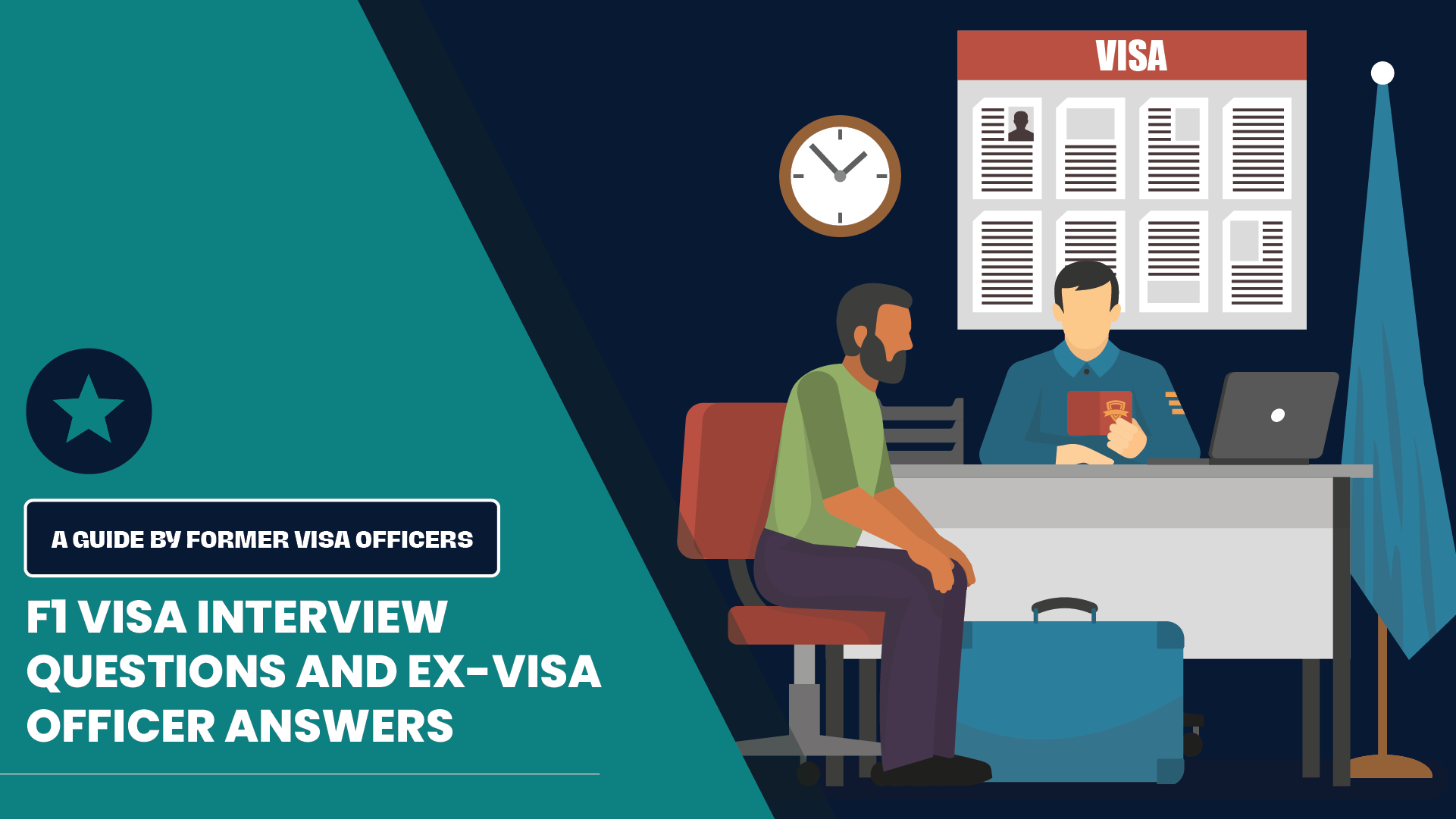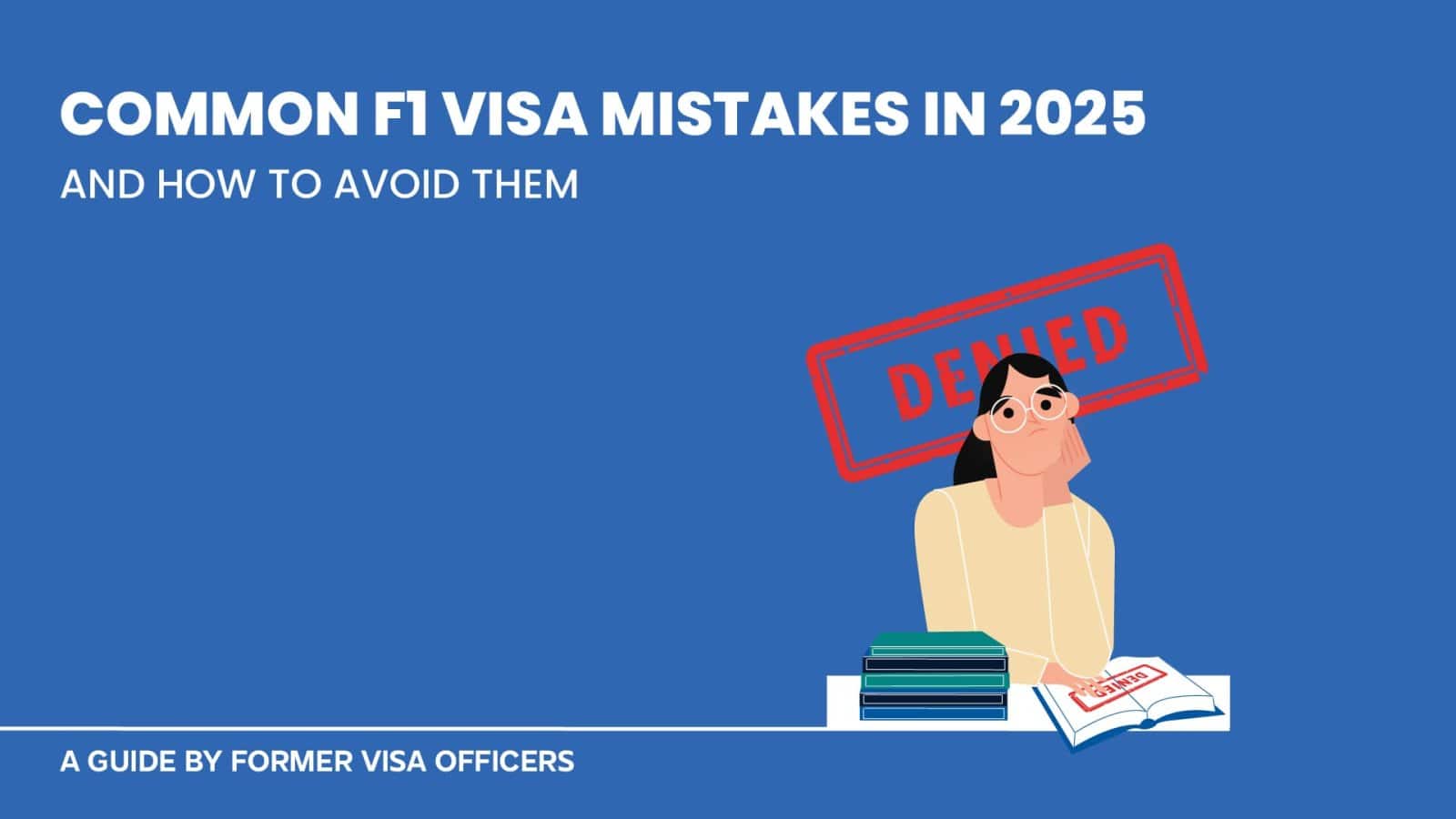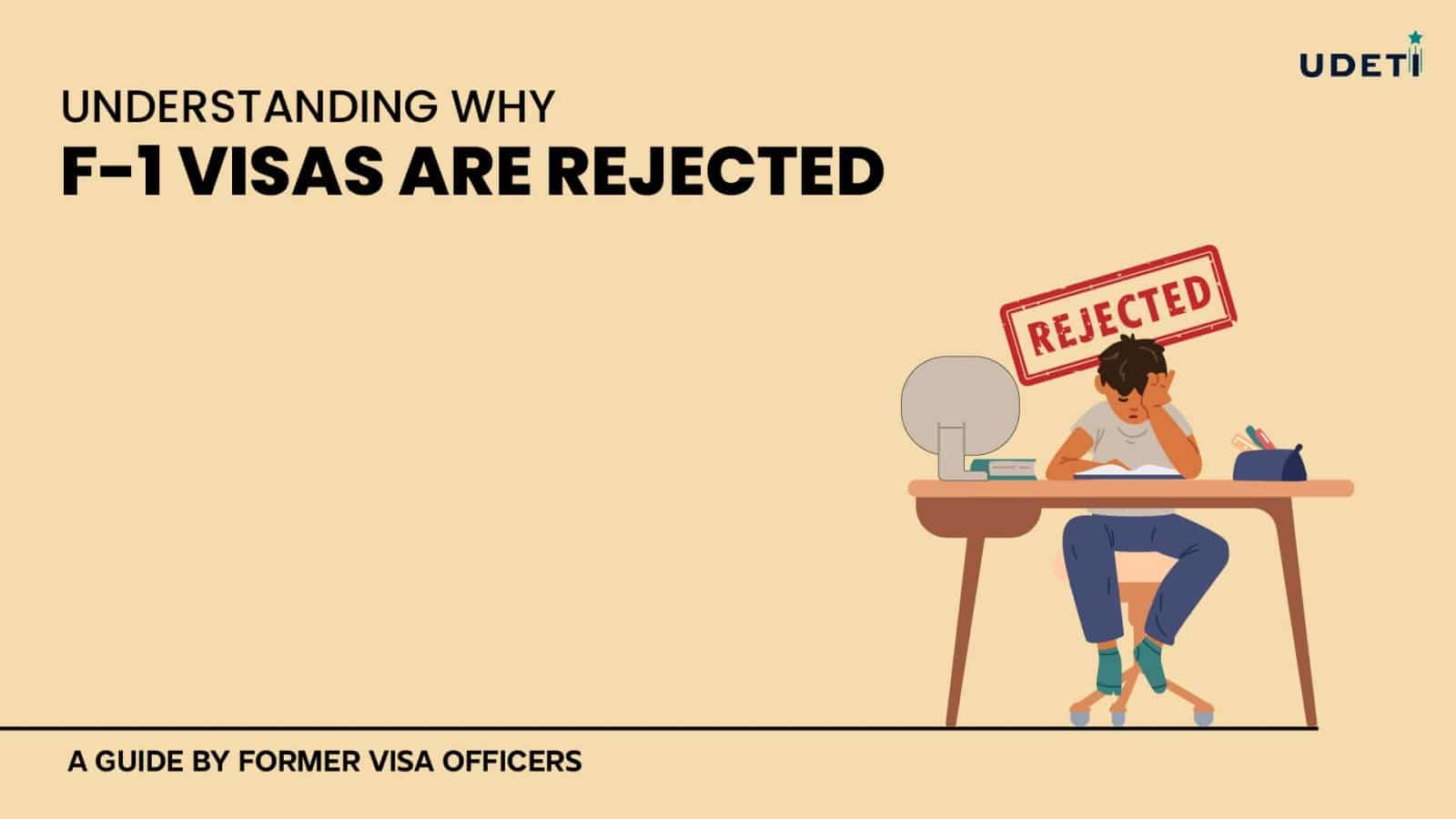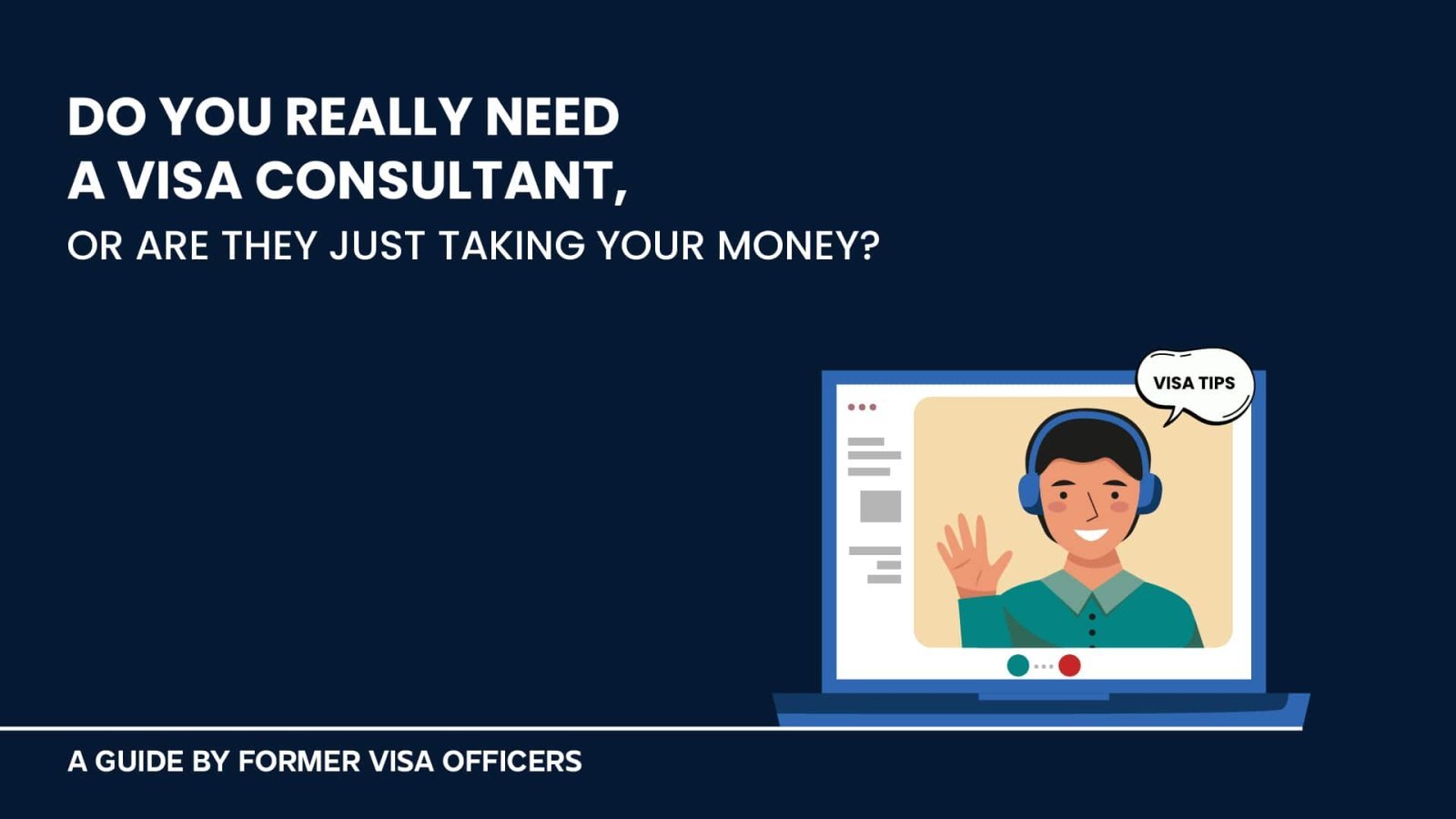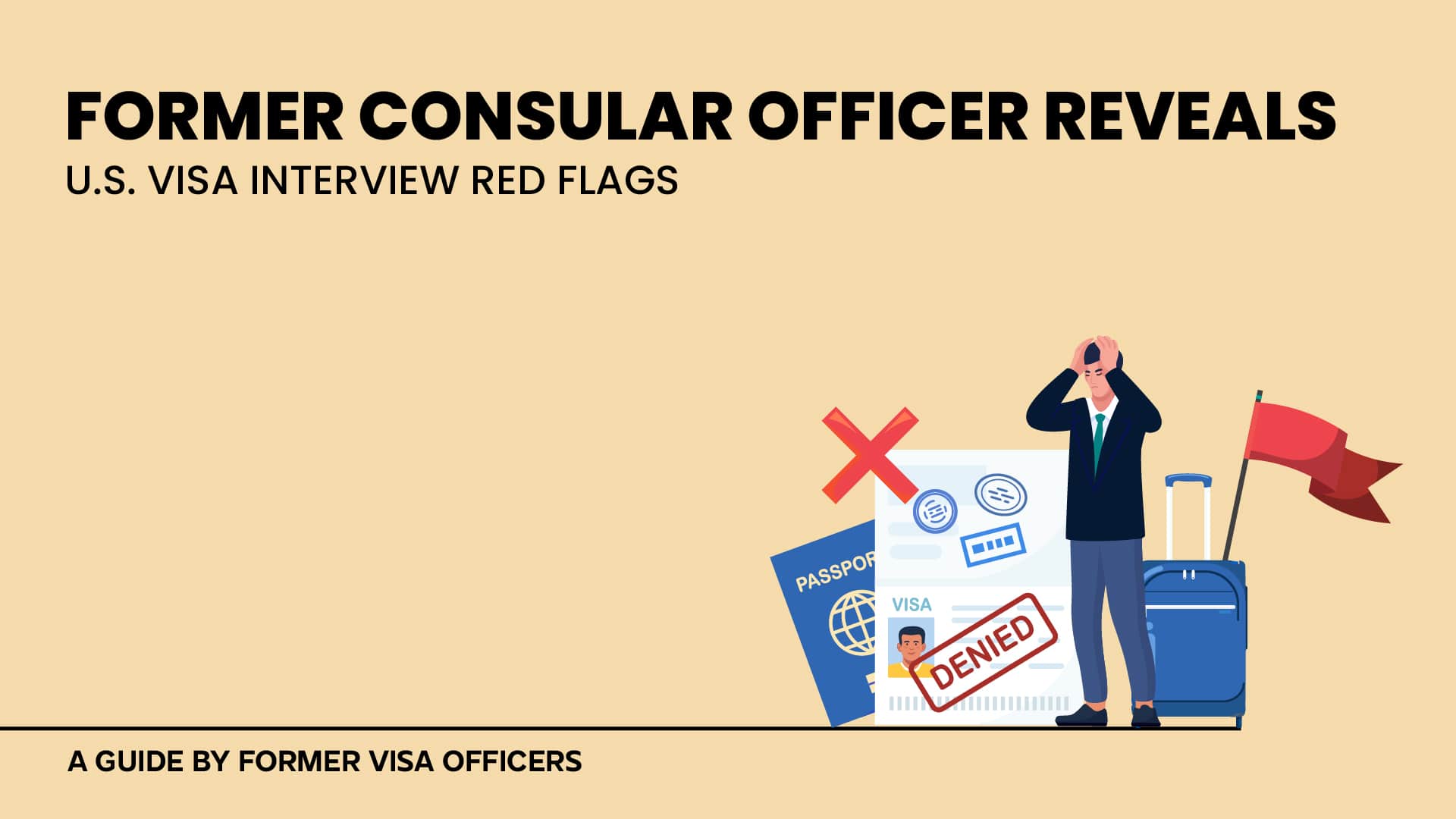During my career as a Consular Officer, I conducted thousands of F1 student visa interviews and, over time, developed a set of 9 questions that I used during the interview to dial down into the specifics of the visa application. Many applicants are surprised that their F1 student interview is short – usually 30 seconds – 5 minutes – but I was able to get a good understanding of the applicant’s qualifications for the visa by using these 9 questions. I used each one to get an idea of the applicant’s academic intent, educational plan, and credibility.
Question 1: Why have you chosen this specific university?
Answer 1:
This is probably the most important question for an F1 student visa applicant to answer because the Consular Officer uses this answer to gauge the applicant’s interest, motivation, and preparedness to study in the U.S. It helped me assess the applicant’s seriousness about their education. There are thousands of universities in the US, and I wanted to understand why the applicant settled on this specific one. Usually, the choice of university comes down to the educational program offerings, but other factors for choosing a university can be campus culture, access to extracurricular activities, geography, and cost. A credible applicant will have done an in-depth search of universities, evaluated the academic programs, developed a short list of possible universities and – most importantly – be able to explain this to me in the interview.
Any type of weak, vague, or rehearsed answer was an obvious sign of a questionable application.
Learn Here: 5 Ways How to Frame Responses in Your F1 Visa Interview
Question 2: Why do you want to study X at this university?
Answer 2:
This is probably the second most important question I would ask because it focuses on the applicant’s educational plans and why this university offers the best education for them. Not all educational programs are the same, and a credible student visa applicant will seek to understand the program’s academic offerings, course specializations, research opportunities, lab access to equipment, etc. This is even more important at the Master’s and PhD levels, where an applicant’s educational goals are more focused. I wanted to see if the applicant was really focused on education, and any type of weak or vague answer was an obvious warning sign to me.
Question 3: Which universities did you apply to? (or) Where else were you admitted?
Answer 3:
I used this question to understand the applicant’s thought process for choosing an academic institution to see if they were a credible student. By understanding the reasoning behind the choice of university, I wanted to be certain that the applicant has thoroughly researched universities in the US and considered all factors, such as academic reputation, program course offerings, costs, and campus culture.
Question 4: What was your backup plan if this university did not admit you?
Answer 4:
This question is another way to see if the applicant is a credible student because a person serious about their education will have backup plans in case they are not admitted to their top university, so I wanted to know the applicant’s plan B.
Question 5: What is your educational background?
Answer 5:
With this question, I was determining if the applicant’s educational plans and timing fit the usual pattern of secondary school, BA, MA, PhD, with minimal gaps in between studies. When I saw someone who was planning to move laterally or down this scale instead of up, I had more questions that needed to be addressed. It’s unusual for someone with a BA to go to the US to study for another BA, not an MA, and I wanted to drill down to understand why. Perhaps the applicant had a credible reason, perhaps not. The same goes for the timing of their educational plans. Applying for a BA program shortly after finishing secondary school is the norm. If there was a long gap, I wanted to know why. A year or two might be something, but five years or more, and I asked myself why. Same if there was a gap between the BA and MA. Applicants should be able to speak credibly about any such gaps.
Question 6: How will studying in the US help your career? (or) What will you do with your US education?
Answer 6:
This is probably the third most important question because it shows how much thought the applicant had put into their future career and why the US education was important to them in achieving their goals. Yes, I know that no one really knows what they want to do for the rest of their life right out of secondary school at 18 years old, but they should have some general idea of their future plans based on their current interests and talents. Usually, most student visa applicants have some general idea of what they want to do for a career and that usually influences their choice of university and area of study. As the consular officer, those applicants who were able to discuss those plans and link them to the opportunity to study in the US were more credible as students and more likely to get the visa. I wanted to see how far in the future they were thinking and how likely they would use the opportunity to study in the US to achieve those goals.
Need to speak to a former U.S. consular officer?
Question 7: How will you pay for your education?
Answer 7:
Demonstrating financial ability to pay for your education in the US is key to getting a visa. Studying at an American university is not cheap – and I have the tuition bills from my son to prove it! Some of my Consular Officer colleagues even started their student visa interviews by examining the applicant’s financial documents. So, applicants should have a full understanding of the financial requirements as set forth in the I-20 document sent by the university.
The I-20 is the minimum amount that the student should expect to pay while studying in the US, and actual expenses can be even higher. Luckily, applicants do not need to show that they have the full amount needed for their entire academic career (i.e. 4 years for a BA), but the finances should make sense, and the applicant and their family should be able to reasonably cover the costs over the full time.
During the interview, I looked for applicants who could credibly speak about their sources of financing. Usually, their parents were sponsoring them, and you would be surprised how many applicants were not able to explain what their parents did for work or how much the family earned each year. Applicants should have a clear picture of the family finances and be able to explain this to the consular officer during their interview. If you are relying on educational loans to pay for your US studies, be prepared to explain how the loan will be paid back and by whom. Finally, universities sometimes offer scholarships and other financial aid, which demonstrates that the university is deeply committed to having the applicant study there. However, scholarships are not guaranteed and can be taken away. Be prepared to discuss any alternate sources of finances if that happens.
Question 8: Do you have any family members in the US?
Answer 8:
Many applicants think this can be a difficult question to answer because they believe that their application will be automatically rejected if they admit to family members in the US. For this question, as well as the rest, be honest and open about the answer. At this age, it is not uncommon to have extended family members living in the US, and the consular officer wants to get an idea of the relationship and the location of the family members. To be helpful in the interview, applicants should be able to discuss who in their family is in the US as well as how long they have lived there. Then, the consular officer will evaluate the information and incorporate it into their decision. Having an uncle and auntie living in the US for 30 years is different from having your parents and younger siblings immigrate last year. Just be honest and tell the truth because the consular officer may already know the information and is trying to gauge your honesty.
Question 9: Other – Depends upon the applicant.
Answer 9:
Finally, since each applicant was different and had different personal circumstances, I might have asked some questions specific to that person. This could be questions about trips outside of their home country, whether they had ever applied for or been denied a US visa, family ties to their own country, or anything else that may be relevant to adjudicate their visa. Since these questions are very applicant-specific, it’s hard to anticipate which questions, if any, the consular officer will ask you. The best option is to answer any question fully and not to hide information. Usually, I asked this to clarify a minor issue, and it was not the deciding factor in my decision to issue or deny a visa.
“What If …” Questions
Since everyone’s situation is different, here are a few of the “What if …” questions that I’ve helped my private clients within the past few months. Maybe these answers will help you!
Question 9.1: What If I am accepted into several different universities and I have an I-20 from each one?
Answer 9.1:
If you have been accepted into two (or more) universities you will need to decide which one you will attend and apply for the F1 visa with the I-20 form from that university. Your F1 visa is tied to that I-20 and you can’t enter the US on a F1 visa for University X and then attend University Y without changing your SEVIS info with DHS.
Question 9.2: What If I got my visa to attend University X but I changed my mind afterwards and decided to attend University Y. Do I need a new interview and visa?
Answer 9.2:
Yes. If you change universities, then you will need a new F1 visa and will most likely need to schedule a new interview since there may be differences in the educational program, funding, or others that the consular office will need to evaluate.
Question 9.3: What if it has been several years since I graduated from secondary school, and now I want to go to the US for my BA?
Answer 9.3:
Don’t worry! It is not unusual for young people to take a gap year (or two) after finishing secondary school before deciding to study in the US. Perhaps you were working, travelling, preparing for the TOEFL or SAT, or studying at a local university. Be able to explain to the consular officer what you were doing and why you are now motivated to restart your academic career in the US. I assure you that all the consular officers were young too and will understand your point of view.
Question 9.4: What If I need to take 5 years to complete my BA program?
Answer 9.4:
Usually, a BA degree is earned after four years of university study, but it is not unusual for academic progress to slow down, so it takes another semester or two to complete the academic requirements for the degree. Once you enter the US on your F1 visa, remain enrolled full-time, and continue to make academic progress towards your degree, you are maintaining your legal status in the US and not at any risk. Every student visa applicant should know and understand the rules of their F1 visa and be sure to follow them while in the US to avoid any problems in the future.
Question 9.5: What If I already have an MA in one field but want a second MA in another field?
Answer 9.5:
This usually applies to people who have attained a high level of education, started their career, and then, after some time working professionally, realize that they lack a certain accreditation or skill set that can only be obtained by going back to university for an MA. Or they may seek another MA from a better university with a higher academic program. In each case, be clear with the consular officer and communicate what skills you are lacking and how attending the US university will help you succeed in your career.
Question 9.6: What If I was denied a B1/B2 visa in the past?
Answer 9.6:
That is a common occurrence where someone may have applied for a B1/B2 visa to travel to the US for tourism or personal reasons and been denied. Often, the application was made when the applicant was a child, and the entire family was planning a trip to the US. It is important to know that the F1 visa category and B1/B2 are different visas and consular officers are looking at different things when adjudicating the visa application. If asked about a prior refusal in your f1 student visa interview, you should be able to explain why you were applying for the B1/B2 visa and what your travel plans were, and the consular officer will factor that information into their decision.
DISCLAIMER:
This blog does not endorse or advocate for any illegal activities. All content presented here is intended for educational purposes only. The viewpoints expressed do not constitute legal advice and are solely based on the writer’s opinions and experiences. Please use the information provided responsibly. Any advice given is of a general nature and should be applied to your specific circumstances with caution and consideration.
Copyright © 2024 UDETI LLC. All rights reserved.

